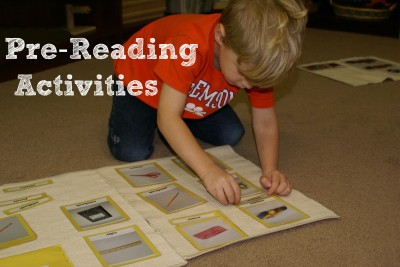Reading is one of the essential skills students need to learn to succeed in school and college. However, not all students are good readers, and that is where reading strategies kick in.
Math & ELA | PreK To Grade 5
Kids see fun.
You see real learning outcomes.
Watch your kids fall in love with math & reading through our scientifically designed curriculum.
Parents, try for free Teachers, use for free
Every child has a different learning style. Learning styles can be visual, auditory, and tactile. These various learning styles are essential in helping you decide how to teach each child best to learn and comprehend lessons.
If you are trying to get your kids to be better readers, here are some of the best reading strategies to get started.
What are Reading Strategies?
Reading strategies for kids is a broad term used to describe the planned and explicit actions that can help readers translate print to meaning.
9 Effective Reading Strategies to Enhance Your Child’s Reading Skills

Here are some reading strategies examples that help you get started:
1. Read Aloud with Expression
The first strategy to implement is teaching your child to use their voices when reading. If they read a sentence with an exclamation point at the end, they should read it in an excited voice. If they read a sentence with a question mark at the end, they should use an interrogative voice. This takes very little instruction and practice, but it helps them understand what they are reading better by engaging in the text.
2. Set a Purpose for Reading Strategies
Setting a purpose for reading is another effective strategy for teaching reading comprehension. When kids are assigned a novel or short story to read, have them write out their purpose beforehand.
3. Schema
One of the most effective strategies for teaching reading is called Schema. This strategy asks kids to connect what they already know with new concepts presented within the text. When you associate further information with what you already know, you will learn it faster and retain it longer.
For example, if you know how to drive a car and are told that your car has four cylinders under the hood, you will understand that these objects allow your engine to work correctly because you already understand how an engine works. This can help you learn more quickly than someone who knows nothing about cars or engines.
4. Stimulate Visual Learning
Visual learning is one of the key aspects of learning to read. At home or school, encourage kids to spot the common letters, pictures, and words on posters, billboards, road signs, etc.
You could also print scripts. Printing script means labeling the things in the house by taking a print, as children will be able to spot the letters easily anywhere they see them. The print script helps children visually learn and identify letters around them. Children learn to recognize their own names even before they know the letters.
Related Reading: How to Teach Visual Learners
5. Ask and Answer Questions
Comprehending the story is very important. Some kids can decode words but not comprehend what they are reading. It’s important to promote active reading. In the beginning, children might focus just on words but later they will move on to comprehending what they are reading.
Here are some fun ask and answer worksheets to get started:
6. Introduce variety
When developing an interest in reading, introduce fiction as well as nonfiction books. Include nonfiction books that can entail information about places, animals, people, and more. Include fiction books that include magical stories of make-believe animals like unicorns. Include realistic stories where the situations are realistic even though the story is fiction.
Related Reading: Different Type of Reading Materials for Kids
7. Self Check – Reading a Book
Reading can be challenging for many children. It is important to pick the right book/story for reading. This decision is important as it is the deciding factor to develop a liking towards reading. The books or stories selected for the readers must be as per their Lexile scores which can easily be checked online.
To ensure that the book/story selected for the child is level appropriate, here is a quick tip: let the child read a sentence from the story. If the child finds it difficult to read five or more words, it means another book/story needs to be picked up.
Related Reading: What Are Reading Levels?
8. Focus on Core Skills
As you read with your child, focus on strengthening the following skills:
- Vocabulary – once you stumble upon a difficult word then that’s the moment of learning to pounce on. Read the words around the main word with the child and guess the meaning. Then check in a dictionary to see if it was correct.
- Phonics – the child should be able to recognise the connection between letters. One should be able to understand the sounds these letters make.
- Phonemic awareness – the child should be able to hear and manipulate the different sounds in words.
Related Reading: Steps to Teach Kids to Read
9. Make Reading Fun
One of the most important reading tips for students is to make reading fun. You can do this by playing reading games, doing crafts, and getting the children involved in other reading activities. This is especially helpful if you have an older child struggling with reading. They will be more likely to participate in activities that involve reading when they are having fun at the same time.
4 Pre-Reading Activities to Prepare Your Child for Reading

- Read the title, subtitle, and table of contents.
- Read any questions that come before the text.
- Look over headings and pictures or illustrations.
- Skim the reader to get an idea of the general topic or theme.
Related Reading: How to Build Pre-Reading Skills in Kids
4 Benefits of Using Reading Strategies

Reading strategies as a mental process help the reader efficiently comprehend text. In other words, they’re the tools readers use to understand what’s written on a page. These strategies can be taught directly to kids and are critical for literacy development.
There are several benefits to using reading strategies before, during, and after reading:
- Understanding how text is organized can help kids understand what they read. A reading strategy like previewing can give an overview of the text organization before reading and using this information. In contrast, reading can help you read a passage in detail or skim it.
- Reading strategies can help monitor comprehension by checking what kids understand during and after reading. Asking questions during reading enables them to check to understand. Summarizing and retelling helps review understanding after reading.
- There are several ways to retrieve information from memory that can enhance comprehension. For example, retrieving data from the text is easier if kids use some mnemonic device to create a link between the new information and familiar information already stored in their long-term memory.
- Reading strategies can help kids access information that is not explicitly stated. They help readers infer meaning, make conclusions, and generalize information. Reading strategies are beneficial for texts that have complex ideas and vocabulary. They can use them to develop comprehension skills and become better readers.
Related Reading: Best Literacy Activities for Preschoolers
Bottom Line
Reading is one of the biggest and most important subjects in any school or university curriculum. Kids are encouraged to read as much as possible, but many people still find it hard to read a book, and some even find reading boring.
Effective reading strategies help kids understand what they read in terms that are easy for them to understand. They also help them find new ways to make reading more fun and more accessible to comprehend what they just read.
Related Reading: What is Reading Readiness?
Frequently Asked Questions (FAQs)
What are the three main types of reading strategies?
The three different types of reading techniques and strategies are skimming, scanning, and in-depth reading.
How can strategies for reading be improved?
By implementing different reading strategies and changing how kids read, you can improve their reading comprehension and make reading more accessible and enjoyable.




























